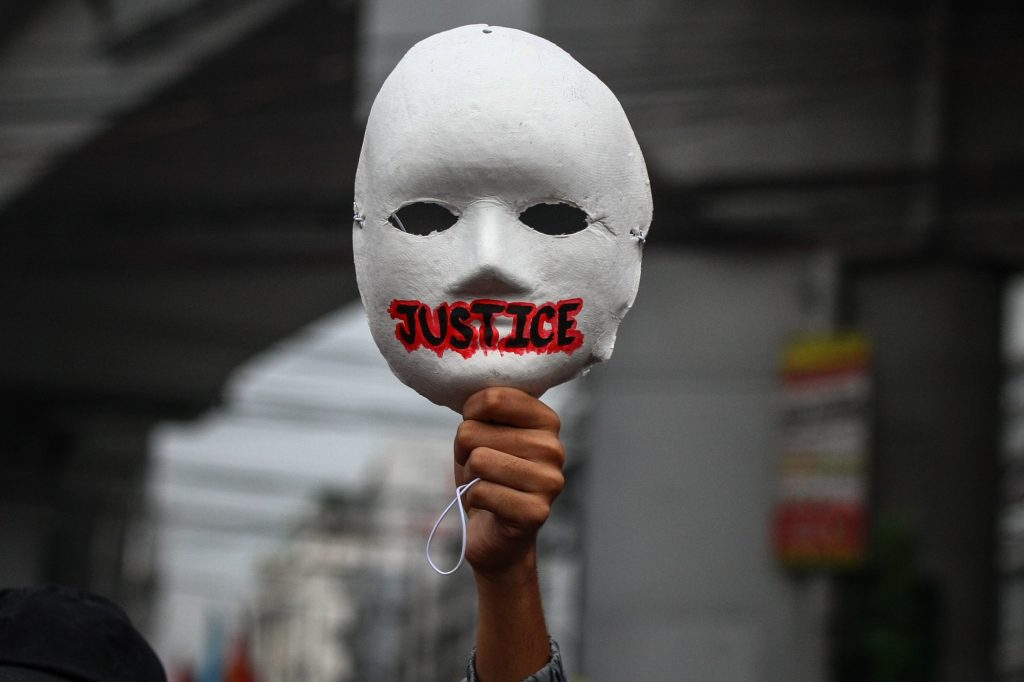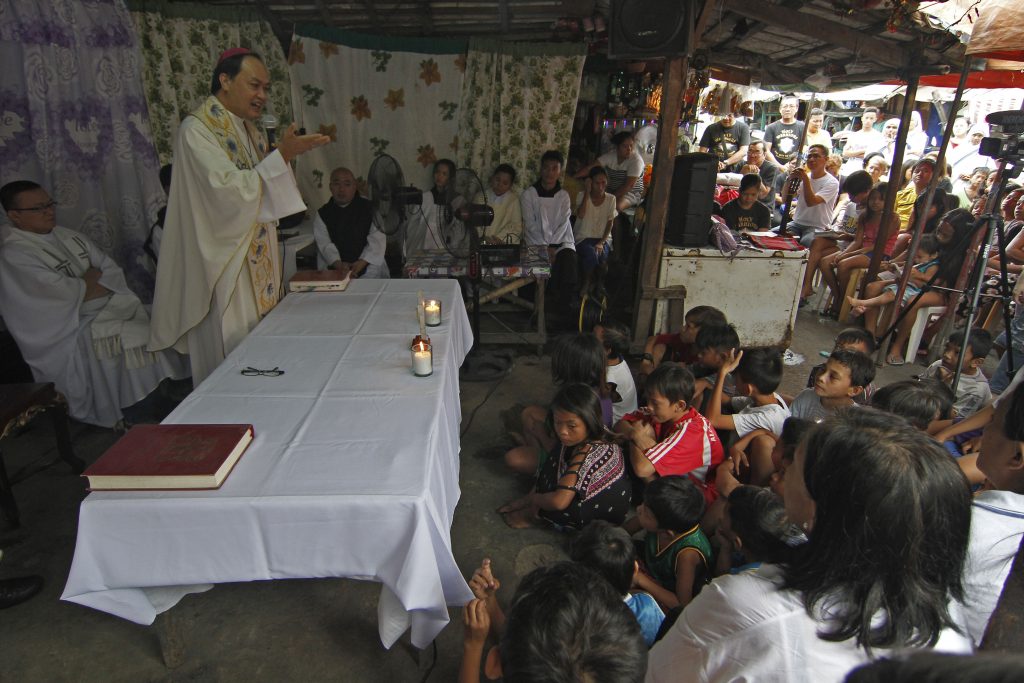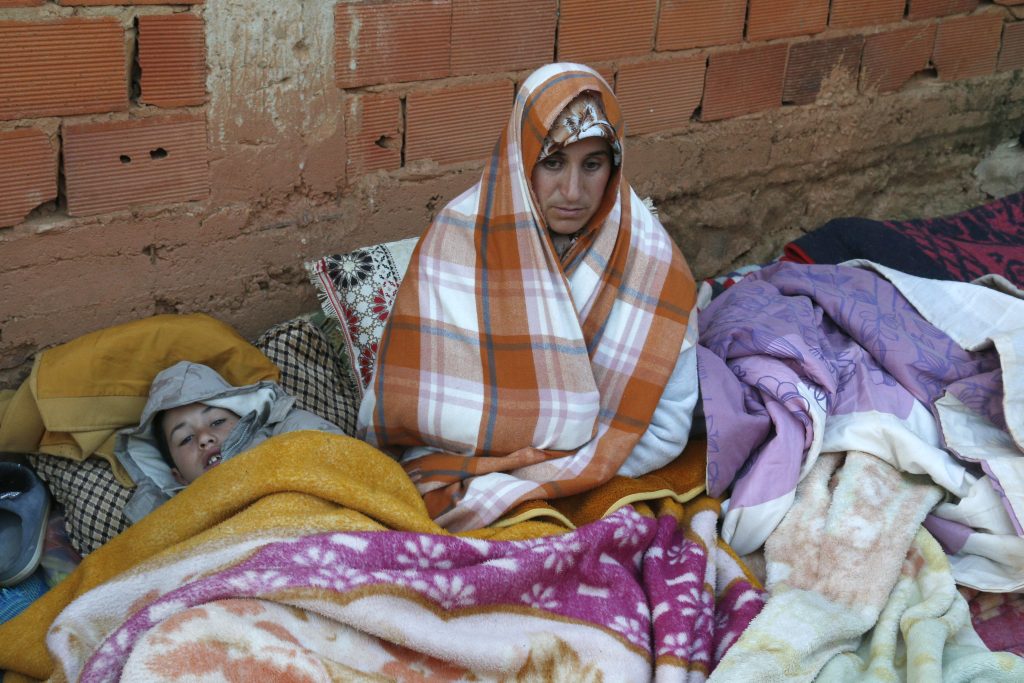
Reflection for the 22nd Sunday in Ordinary Time (Cycle B)
It has often been said that laws are made to be broken. Such is an expression that may not have been intended to give credence to the philosophical notion of anarchy, but is rather an insightful yet cynical remark pointing out the futility or foolishness of some laws in failing to uphold what it has been meant to uphold: justice.
Laws are the decrees or social agreements that articulate and provide the ground rules through which justice is served, thus enabling social order and stability, and sustaining harmony and peace.
Therefore the “spirit of the law” for whatever may be a sufficient and careful approximation of the order of the cosmos determined by God as the Creator Spirit, will be the guide for maintaining the same order within all its animate elements, whether it is a family, a community, a church, a country or a league of nations. This may be the sense when James wrote that “the Father of Light … by his own will, gave us life through the word of truth.”
However, the nuances of languages – with which the “letter of the law” makes visible this “spirit of the law” – can create problems and potential abuses. As this literal form changes through numerous deliberations, discussions and debates, the “letter” may gradually deviate from the “spirit”; and even in its finalized concurred form, the “letter” can still claim to a number of slightly varying yet valid interpretations, that may not fully express “truth.” This critical discontinuity between the “spirit” and the “letter” is most delicately corrected by a triumvirate of co-equal branches of social governance: those responsible for closely translating the “spirit” into the “letter;” those accountable for responsibly executing the “letter” with the presumption that it is fulfilling its “spirit;” and those who in times or cases of doubt, are charged with the function and authority to furnish an indisputable interpretation of the “letter” that is to be properly understood as the fulfillment of its “spirit.”
So exists this precarity between “letter” and “spirit.” Such a fragility of significations means that the “letter” may deliberately be confounded with a form or an interpretation in which a law actually serves the interests of injustice. We are often compelled – or sometimes threatened – to comply with laws that are being rationalized to be in the interests of order; however, if the same laws serve injustice, then how can the consequences not be disorder? Clearly, no order can be stabilized in a perceived milieu of injustice: There will always be a volatile tension between a forced obedience to unjust laws to maintain order, and a growing disorder arising from a natural counter-reaction against the very injustice which the laws themselves have established. A law that is not a faithful “word of truth,” will lead us not to life but to death.
Hence, at the very core of any law – whether it regulates a political or an ecclesiastical order – is “justice;” the “letter” that is comprehended to be just, is most likely what fulfills its “spirit.” So, laws are not exactly made to be broken rather are changed, because conceptions of justice are also changing through evolving historical and cultural contexts. Laws found to be inapplicable or irrelevant, are or can be “broken” if they remain unchanged in spite of new or improved ideas of justice.
Justice as well as the charity and compassion that drives it, can come only from the Lord. The Christ most wisely tells us that our purely human conceptions of justice – not emanating from a mystical-prophetic spirituality initially focused on the mercy of God and on a grateful love-response for God and for others – will become “human traditions” that serve the interest of injustice while claiming to serve the interests of justice. When uncorrected, this critical discontinuity becomes indicative of what he condemns as “hypocrisy.”
If justice is the purpose of our service, and if justice comes from the Lord, then the observance of our religion must effectively correspond to the observance of our social duties. So, a similar critical discontinuity – or hypocrisy – can also unfortunately permeate our sacred and secular obligations, which are actually one and the same. Zealous efforts at personal sanctification without social action and vice-versa – prayer or good works without the other – may perhaps be the worst of sins.
Holiness comes with the minimum responsibility not to unduly hurt people – flawed or unflawed – with our words and deeds, and especially with the power of money; and with the greater responsibility to duly uplift people in all cases at all times. James reminds what is religion that is pure and undefiled: “To care for orphans and widows in their affliction and to keep oneself unstained by the world.” Micah recalls the prophetic words of Amos, Hosea and Isaiah stating what the Lord has shown us to be “good” and what he “requires of us:” “to do justice, and to love kindness, and to walk humbly with our God.” For as long as we do “not add nor subtract” from his commands, “we will live in the presence of the Lord”, a “great nation of truly wise and intelligent people.”
We are thus the sole agents of our own undoing; there is no one nor nothing else to blame for our downfall, “Nothing that enters one from outside can defile that person, but the things that come out from within are what defile.” When we can with some strange reasoning, legitimize “unchastity, theft, murder, adultery, greed, malice, deceit, licentiousness, envy, blasphemy, arrogance, folly”, then we need not wait long for our end.
Brother Jess Matias is a professed brother of the Secular Franciscan Order. He serves as minister of the St. Pio of Pietrelcina Fraternity at St. Francis of Assisi Parish in Mandaluyong City, coordinator of the Padre Pio Prayer Groups of the Capuchins in the Philippines and prison counselor and catechist for the Bureau of Jail Management and Penology.
The views expressed in this article are the opinions of the author and do not necessarily reflect the editorial stance of LiCAS.news.
Source: Licas Philippines





0 Comments